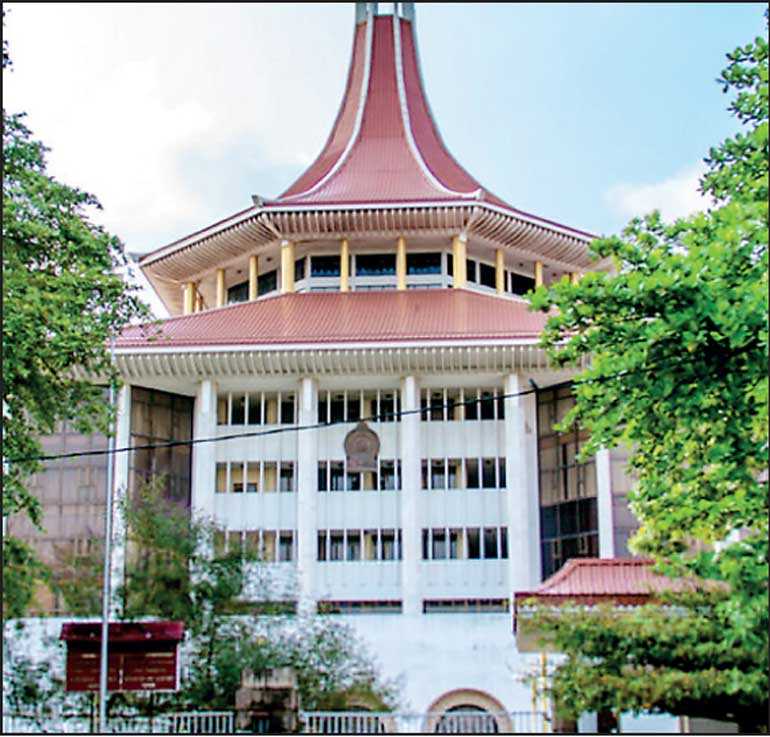Friday Feb 20, 2026
Friday Feb 20, 2026
Monday, 12 October 2020 00:15 - - {{hitsCtrl.values.hits}}

The five-member Bench of the Supreme Court in its determination on the 20th Amendment to the Constitution Bill held four-to-one that four of the Bill’s clauses need the approval of the people at a Referendum while the rest can be approved by a special majority in Parliament.
Copies of the SC’s determination were sent to Speaker Mahinda Yapa Abeywardena on Friday.
He will announce the SC determination to the House on 20 October when it meets next.
A copy of the determination was seen by the Daily FT.
Four of the justices namely Chief Justice Jayantha Jayasuriya PC, Buwaneka Aluwihare PC, Sisira de Abrew PC and Vijith Malalgoda held that four clauses would require a referendum as well as a two-thirds majority in Parliament but said the inconsistencies in three of the clauses can be overcome with amendments at the Committee Stage of the Bill.
Justice Priyantha Jayawardene, however, held that these clauses as well as several others can be passed with a special majority in the House and there was no need for them to get the people’s approval at a referendum.
These include the clauses in the Bill repealing the President’s duty to create the conditions for the holding of free and fair elections as requested by the Election Commission, the dissolution of Parliament within one year of an election, of Presidential immunity to the extent of preventing fundamental rights challenges by citizens and the removal of the constitutional duty on public officers to obey directives of the Election Commission with failure to do being an offence.
“Clauses 3, 5, 14 and 22, in their present form are inconsistent with Article 3 read with Article 4 of the Constitution and therefore require approval by the people at a Referendum by virtue of the provisions of Article 83. However, such inconsistency in clauses 3 and 14 would cease by amending in accordance with the proposed Committee Stage amendments and consequently would not require approval by the people at a referendum,” the SC said.
Inconsistency in Clause 5 would also cease if it is suitably amended as specified in the determination at the Committee Stage and would then not require the approval of the people at a referendum, the Court said.
Clause 5 of the Bill seeks to remove the right of any person to invoke the jurisdiction of the SC in relation to any alleged infringement of Fundamental rights due to the conduct of the President. The SC Bench held that the removal of existing guarantees in the Constitution is inconsistent with Article 3 and 4 of the Constitution and in its current form would require the approval of the people at a referendum.
The Court, however said, if Clause 5 is suitably amended to make provision for the people to invoke the jurisdiction of the SC under Article 126, it can be passed with only a special majority in the House.
With regards to Clause 22 which deals with failure to comply with guidelines of the Election Commission, and seeks to repeal Article 104GG, the Court held that repeal of this Article has a prejudicial effect on the franchise and is inconsistent with Article 3 read with Article 4 of the Constitution and hence requires the approval of the people at a Referendum.
The Bill needs the approval of a two-third majority in the 225 Legislature, including those who are not present to become law.
39 petitions were filed challenging the constitutionality of the Bill with nine intervening petitions.